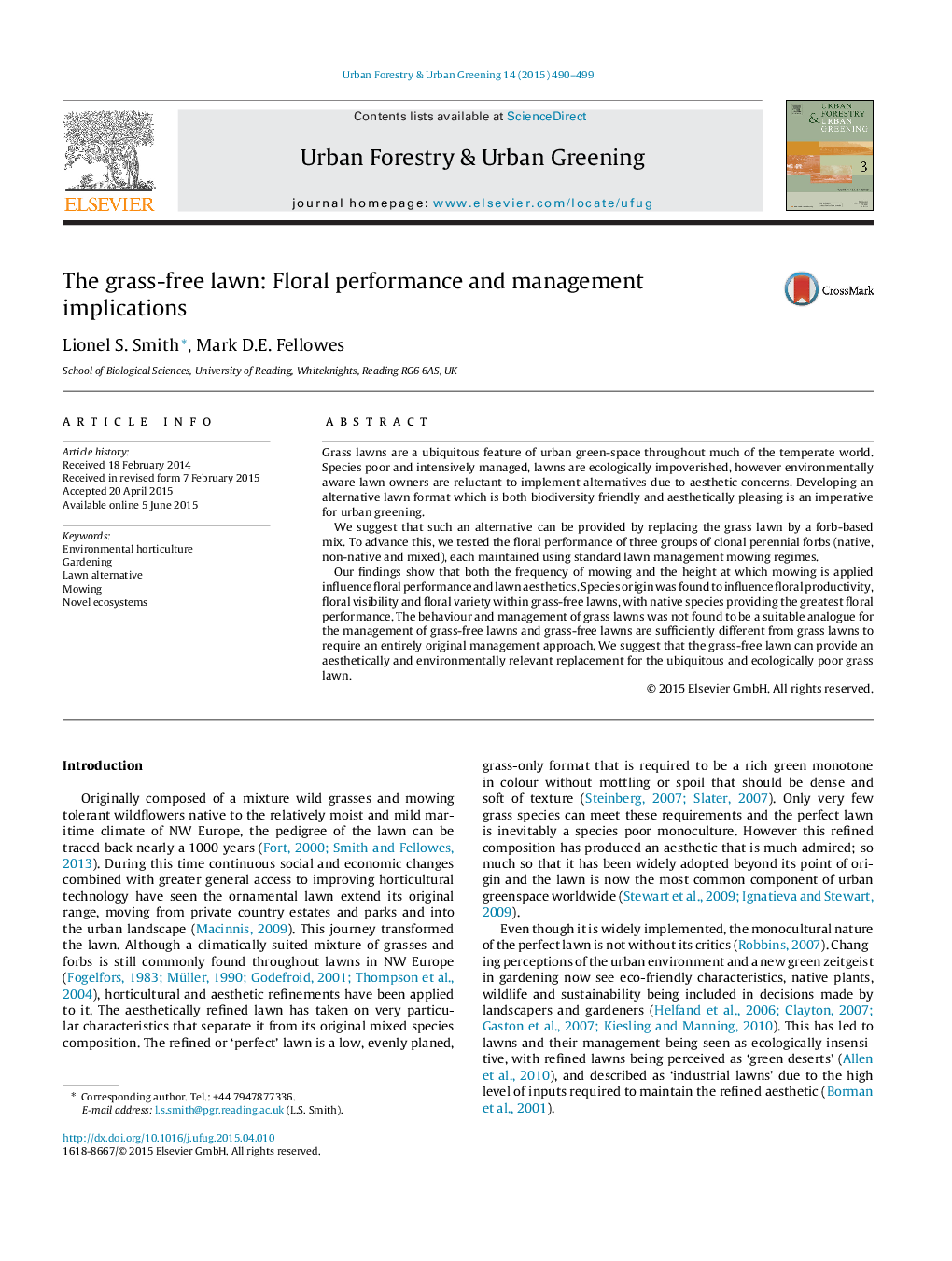| Article ID | Journal | Published Year | Pages | File Type |
|---|---|---|---|---|
| 10252199 | Urban Forestry & Urban Greening | 2015 | 10 Pages |
Abstract
Our findings show that both the frequency of mowing and the height at which mowing is applied influence floral performance and lawn aesthetics. Species origin was found to influence floral productivity, floral visibility and floral variety within grass-free lawns, with native species providing the greatest floral performance. The behaviour and management of grass lawns was not found to be a suitable analogue for the management of grass-free lawns and grass-free lawns are sufficiently different from grass lawns to require an entirely original management approach. We suggest that the grass-free lawn can provide an aesthetically and environmentally relevant replacement for the ubiquitous and ecologically poor grass lawn.
Keywords
Related Topics
Life Sciences
Agricultural and Biological Sciences
Forestry
Authors
Lionel S. Smith, Mark D.E. Fellowes,
